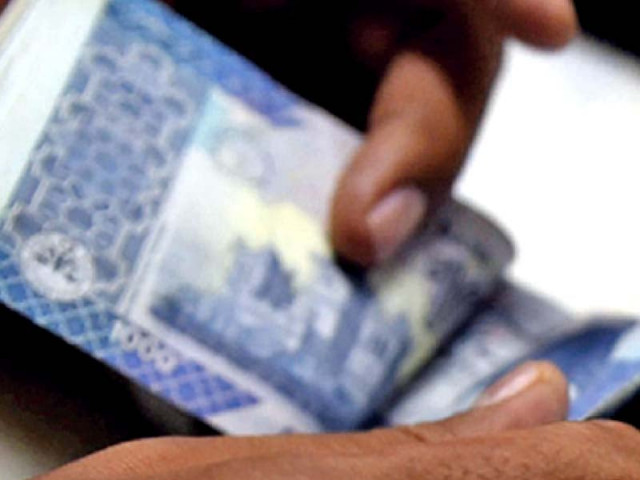Cabinet to ponder extension for old banknotes
Previous government had banned use of old-design currency notes from Dec 2016

The federal government has proposed to give a five-year extension in exchanging old-design currency notes of four values – including Rs1,000 – to give benefit to certain individuals, though these notes had been declared trash papers five years ago.
The federal cabinet will today (Tuesday) take a decision whether to allow certain individuals to exchange the old notes till December 31, 2026. Both the Ministry of Finance and the State Bank of Pakistan (SBP) have recommended giving the extension in the deadline.
The last Pakistan Muslim League-Nawaz (PML-N) government had banned the use of old-design currency notes having value of Rs10, Rs50, Rs100 and Rs1,000 with effect from December 1, 2016.
However, it allowed the exchange of old banknotes from commercial banks by the end of November 2016 and from the SBP Banking Services Corporation (BSC) field offices till December 31, 2021.
Now, the government has come up with a proposal to give another five-year extension to exchange the old notes.
It has become an informal business to collect demonetised notes from people who are not aware of any facility to exchange them and then get them changed with new notes from the counters of the central bank. A further five-year extension will benefit such people who have collected these notes in large numbers in the past.
The Ministry of Finance has backed the extension while relying on a proposal of the SBP board
However, sources in the SBP board told The Express Tribune that the board’s endorsement for giving a further five-year extension had been secured without giving any compelling economic rationale.
They said that a few individual cases had been highlighted where people lost the value of the money after the government demonetised the Rs500 old-design, large notes in 2011.
The old-design Rs500 banknotes were demonetised and were initially required to be exchanged by September 30, 2011, which was subsequently extended till October 1, 2012.
The cases that were cited for review by the SBP board included the Rs78,000 loss faced by an individual and Rs960,000 loss sustained by Pakistan Railways, said the sources.
“The SBP considers that fixing a deadline for exchangeability of such banknotes and rendering them valueless after that date may deprive certain individuals, who for some reason failed to exchange their holdings of such demonetised banknotes,” said the documents.
But the names of “certain individuals” have not been officially disclosed.
Sources said that the SBP was of the view that in central banks in the developed world, whereby the old legal tender could be exchanged from the central banks at any time, one door must remain open for people, who could not redeem their holdings in time.
According to the SBP Act, the central bank is the sole issuer of banknotes in Pakistan and the federal government on the recommendation of the SBP board declares any series of banknotes of any denomination that they have ceased to become legal tender and exchangeable.
The central bank has changed its stance about cancellation of the currency notes, after first getting those demonetised six years ago.
It has argued that demonetisation practices in different countries of the world differ from each other. The United States government has adopted a policy whereby all banknotes issued by the Federal Reserve (Fed) remain legal tender regardless of their date of issuance.
The Fed does not demonetise old-design banknotes and they remain perpetually exchangeable, according to the central bank. The Reserve Bank Australia also follows a similar practice.
The Bank of Canada has recently revoked the legal tender status of some denominations from all previously issued series. However, these banknotes remain exchangeable.
The Bank of England, European Central Bank and Swiss National Bank also follow the practice adopted by the Bank of Canada regarding old banknote series, stated the SBP.
In November 2016, Indian Prime Minister Narendra Modi had given only four-hour notice to demonetise 86% of the total currency, according to the BBC World.
India had declared all 500 and 1,000-rupee currency notes invalid within hours, which were equal to its 86% currency in circulation at that time.
Published in The Express Tribune, December 14th, 2021.
Like Business on Facebook, follow @TribuneBiz on Twitter to stay informed and join in the conversation.



















COMMENTS
Comments are moderated and generally will be posted if they are on-topic and not abusive.
For more information, please see our Comments FAQ